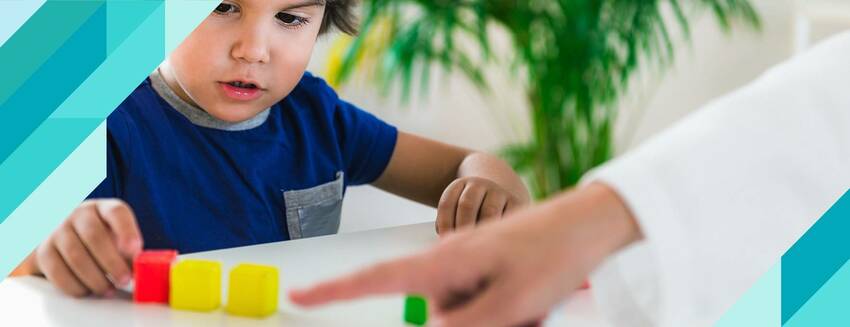- E-Magazine
Contents
Autism Spectrum Disorder, which is caused by differences in brain development and functioning, emerges in childhood. The onset of autism, in which disruptions are seen in language, motor and social communication development, can be observed in infancy, and can also occur after a while in children with normal development. Asst. Assoc. Prof. Dr. Başak Ayık, who warns parents to follow the child's communication with his/her environment, emphasizes that the symptoms of autism in the child can be partially or completely recovered with early diagnosis and correct treatments.
[haberyatay=autism-buyuyunce-guyunce-gecmeymiyor]
Every year, April 2 is commemorated as "Autism Awareness Day" all over the world. Child and Adolescent Psychiatry Specialist Assist. Assoc. Prof. Dr. Başak Ayık from Üsküdar University NP Feneryolu Medical Center gave important information about Autism Spectrum Disorder (ASD).
Autism symptoms start in early childhood
"'Autism Spectrum Disorder (ASD)' or formerly known as 'Pervasive Developmental Disorder (PDD)' is one of the childhood neurodevelopmental disorders," said Assist. Assoc. Prof. Dr. Başak Ayık,
"It is a disorder that occurs in childhood and is caused by differences in brain development and functioning. Symptoms usually start in early childhood. The onset can be in 2 ways. In the first type, the child's development is disrupted from the very beginning. Many developmental steps (such as language, motor, social communication) are acquired later than normal or not at all. In the second type, children who show normal development at first show regression or stagnation in developmental steps after a while."
If your child has these symptoms, don't waste time!
Child and Adolescent Psychiatry Specialist Assist. Assoc. Prof. Dr. Başak Ayık from Üsküdar University NP Feneryolu Medical Center warned, "If your child has these symptoms, consult a child and adolescent psychiatry physician as soon as possible and ask for an evaluation" and expressed the symptoms as follows:
- "No or limited eye contact at 6 months; no social smiling (responding to smiles or smiling at people),
-9. Not making any noise during the month; not trying to communicate with people,
-1 years old not looking at you when you call his/her name,
-16 months without a single meaningful word,
- the absence of two-word sentences at age 2 or the loss of any previously learned skills."
The most important treatment: "Special education sessions tailored to the individual"
Noting that the most important treatment of autism is "special education sessions tailored to the individual", Başak Ayık said, "Since the main problem is in the field of social communication, although other areas of retardation (such as fine motor, gross motor) are worked on in special education sessions, the most important intensity should be in efforts to increase social communication. The individual education sessions should be supported by the parents at home, and the stimulus and education time the child receives should be kept as long as possible."
[news-horizontal=child-with-autism-should-be-along-with-his-peers]
10 things to know about individuals with autism
Assist. Assoc. Prof. Dr. Başak Ayık listed the 10 things families should know about individuals with autism as follows:
1. "Autism is a childhood disorder diagnosed and treatment plan organized by 'child and adolescent psychiatry physicians'.
2.Autism is a brain disorder, and the brains of children with autism develop differently from normal individuals.
3.The severity of autism is observed differently in each individual. There are very severe types as well as individuals with very mild symptoms.
4.Autism is not related to intelligence. It can be seen both in individuals with superior intelligence and in individuals with mental retardation.
5. Vaccines do not cause autism. However, your unvaccinated child poses a serious risk of fatal and disabling diseases, both for themselves and for other children and people in the community.
6.The earlier the symptoms of autism in a child (such as not speaking, lack of interest in the environment, repetitive movements, lack of eye contact) are recognized and the earlier the child is referred to a child psychiatrist, the better the treatment results.
7.The most important known treatment for autism is individual education programs that are started at an early age and continued regularly.
8. If appropriate for the child, they can also benefit from speech and language therapy in addition to individual education."
9. Problems such as attention problems, self-harming and self-destructive behaviors, obsessions can be medically solved and treatment plans and follow-ups are made by child psychiatry physicians.
10. With early diagnosis and the right treatments, the symptoms of autism in your child may partially or completely improve."
What is the autism genetic panel WES (Whole Exome Sequencing)?





